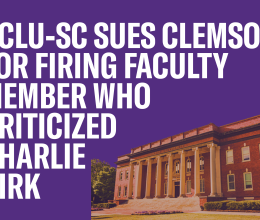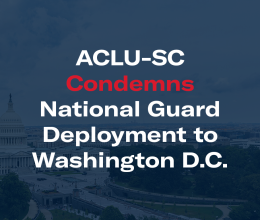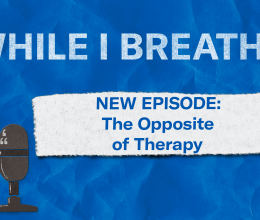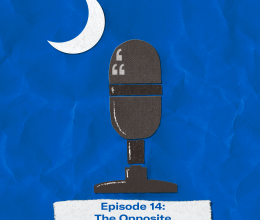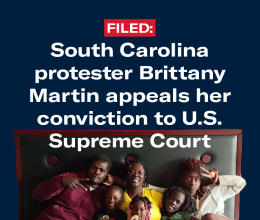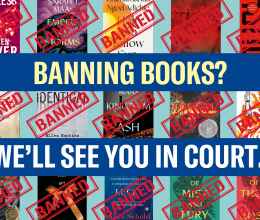
Two weeks of legislative action remain until May 8, when the South Carolina General Assembly is scheduled to adjourn until January 2026. Any bills not passed by this date, known as sine die, can still be taken up for debate in the next calendar year.
Private school vouchers to exclude disability protections
State lawmakers have been pushing since day 1 of the legislative session to pass a bill (Senate Bill 62) that would send public funds to private K-12 schools, including religious schools. They are doing this despite the State Supreme Court telling the state in September that a nearly identical program violated the state constitution.
After delaying a vote last week because not enough lawmakers were in the chamber, Senate Majority Leader Shane Massey told reporters he intends to get S. 62 passed on Tuesday, April 29.
The current “compromise” version of the bill allows voucher recipient schools to ignore Individualized Education Programs (IEPs), which ordinarily require a school to serve the educational needs of students with disabilities. About 15% of public school students have an IEP.
The latest version of the bill also allows the General Assembly to fund 15,000 vouchers per year, worth $7,500 apiece, either by stealing funds from the state's general fund or by diverting revenue from the South Carolina Education Lottery, which currently funds in-state college scholarships. Lawmakers have announced their intent to eliminate the cap on voucher recipients and provide them to wealthy families regardless of income in future budget years.
The South Carolina Education Association has more information about the private school voucher bill and a tool to help you contact your lawmakers about it.
State-level bullies push for anti-gay ‘therapy’
In 2021, Columbia became the first city in South Carolina to prohibit licensed professionals from offering minors “conversion therapy,” a discredited form of pseudo-therapy that seeks to force gay and lesbian people to pretend they are heterosexual. This long-overdue policy came after professional medical organizations had condemned the practice for decades.
Last week, on April 23, South Carolina Attorney General Alan Wilson sent a letter to the City of Columbia demanding that it repeal its anti-conversion therapy ordinance. He cited religious freedom concerns — despite the fact that the ordinance only applies to licensed counselors and does not prohibit anti-gay speech and practices within religious institutions.
The same day, the South Carolina Senate adopted a budget amendment proposed by State Sen. Josh Kimbrell that threatened to eliminate state funding to the city unless it changed the ordinance. The state budget has not been finalized, so the budget amendment is not in effect.
It’s worth noting that both Wilson and Kimbrell have been hinting at a run for governor in 2026. Along with U.S. Rep. Nancy Mace, these politicians have been one-upping each other with hateful stunts and posturing against LGBTQ people all year. If you would like to show support for Columbia leaders who are standing up to this demagoguery, you can contact City Council members here or join local advocates at the next Columbia City Council meeting on May 6 at 4 p.m. (1737 Main Street, Third Floor, Columbia, SC 29201).
Subcommittee approves school proselytization bill
Last week the House Education and Public Works Committee gave a favorable report on House Bill 3758, which would allow students to deliver religious messages at forums including graduation ceremonies, morning announcements, assemblies, and the start of athletic events. The bill can now be debated on the House floor.
Students have the right to pray during free time at school and to participate in before- and after-school religious events and student religious clubs. We oppose efforts to subject public school students to prayer and proselytizing during official school events, a clear violation of the First Amendment’s prohibition on establishment of religion.
To contact your state lawmakers about this bill, use the Find Your Legislators tool at scstatehouse.gov.
‘Dear Colleague’ letter blocked by court
In a March 14 memo to S.C. Department of Education employees, State Superintendent Ellen Weaver sought to impose a state definition of sex; forbade her employees from practicing Diversity, Equity, and Inclusion (rebranded by her office as “Discriminatory Equity Ideology”); and even included a list of forbidden words in her office, including “antiracism,” “cisgender,” “implicit/unconscious bias,” and “social-emotional learning.”
Weaver cited several statements and executive orders from the Trump administration as her rationale for imposing speech restrictions on her staff. One was the Feb. 14 “Dear Colleague” letter that sought to roll back efforts to create equity in schools.
We got some good news last week. On April 24, a federal judge blocked enforcement of the Dear Colleague letter. To quote our colleague Sarah Hinger, deputy director of the ACLU Racial Justice Program, “The federal government has no authority to dictate what schools can and cannot teach to serve its own agenda, and this ruling is an important step in reaffirming that.”
Like so many edicts and orders from the Trump administration (and the Weaver administration), these speech restrictions on S.C. Department of Education employees are crumbling as they encounter challenges under the U.S. Constitution. We don’t have kings or queens in this country, and we never will.
Gang categorization bill advances to Senate floor
Senate Bill 76 would establish an overly broad definition of criminal gangs, paving the way for discriminatory enforcement and harsh sentencing. It states that the existence of a criminal gang “may be established by evidence of a common name or common identifying signs, symbols, tattoos, graffiti, or attire or other distinguishing characteristics including, but not limited to, common activities, customs, or behaviors.”
The pitfalls of overly broad gang classification are making international news lately. We’ve seen the U.S. government misclassify people as members of the Tren de Aragua gang and send them to a Salvadoran mega-prison on the basis of tattoos of crowns and clocks. In Georgia, activists opposing the construction of the “Cop City” police training center in a forest have been hit with gang and domestic terrorism charges.
Here in South Carolina, S. 76 received a favorable report from the Senate Judiciary Committee on March 26. It can be brought up for debate on the Senate floor at any time now.

